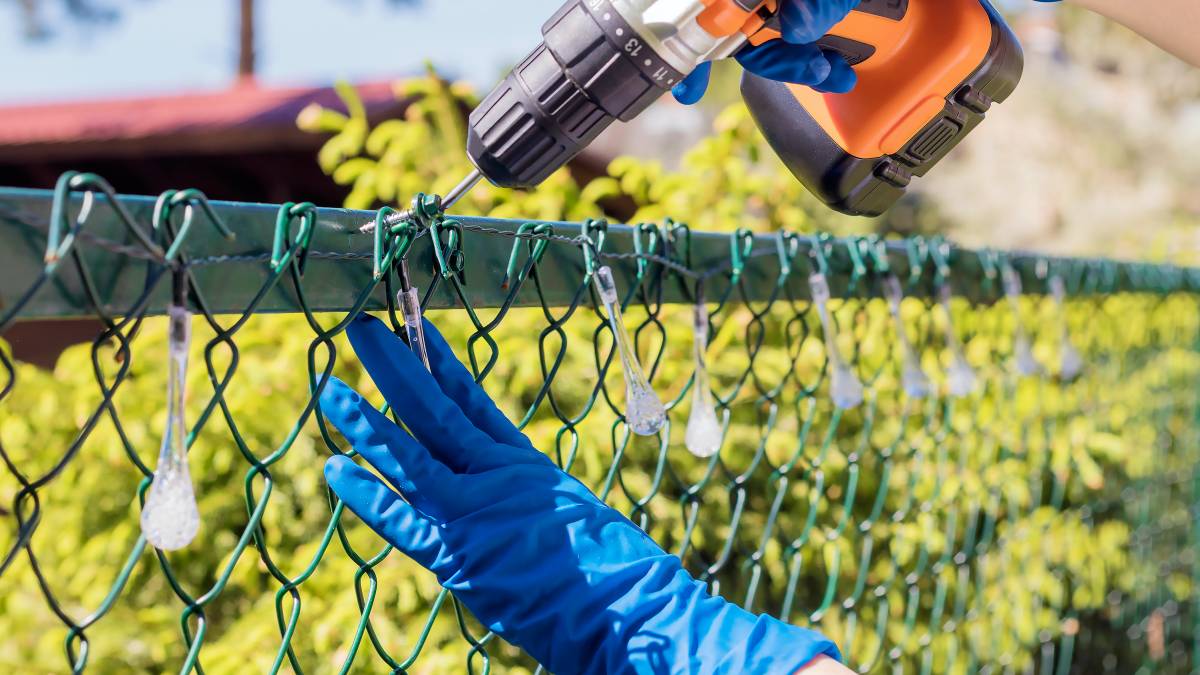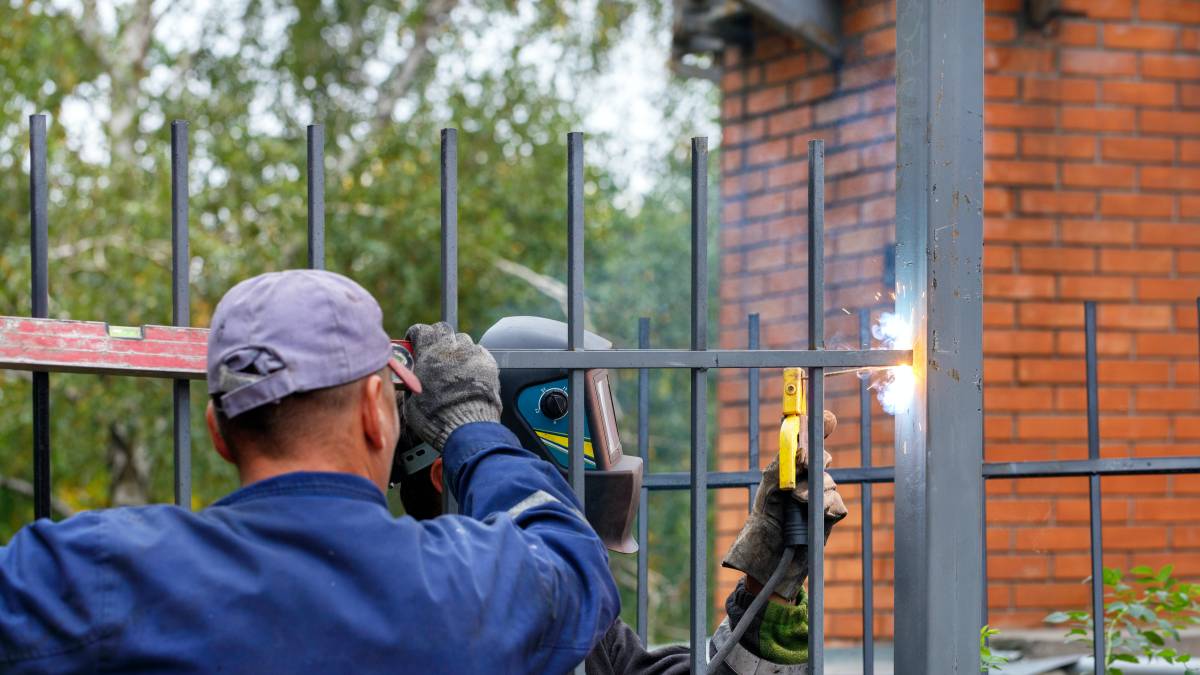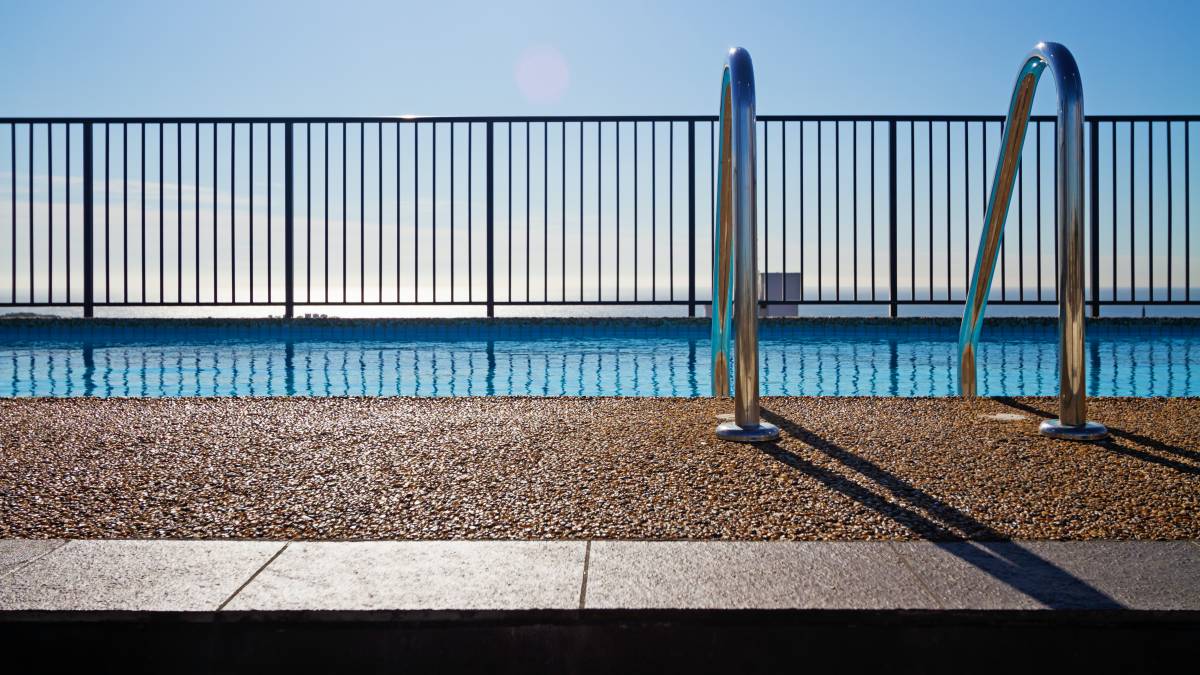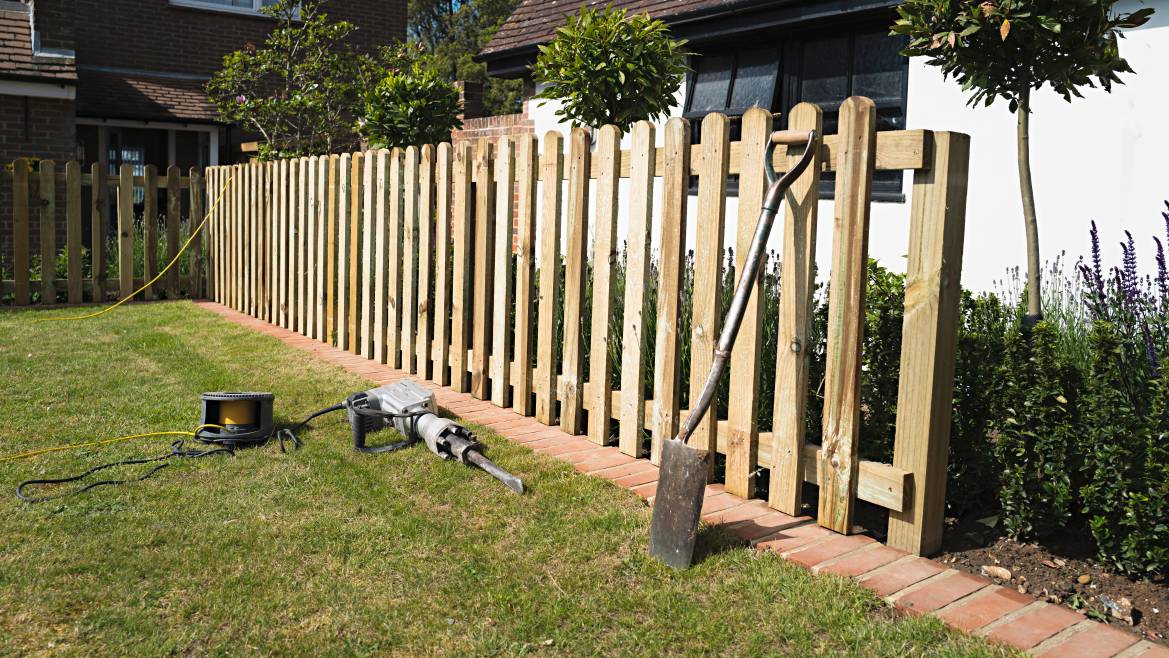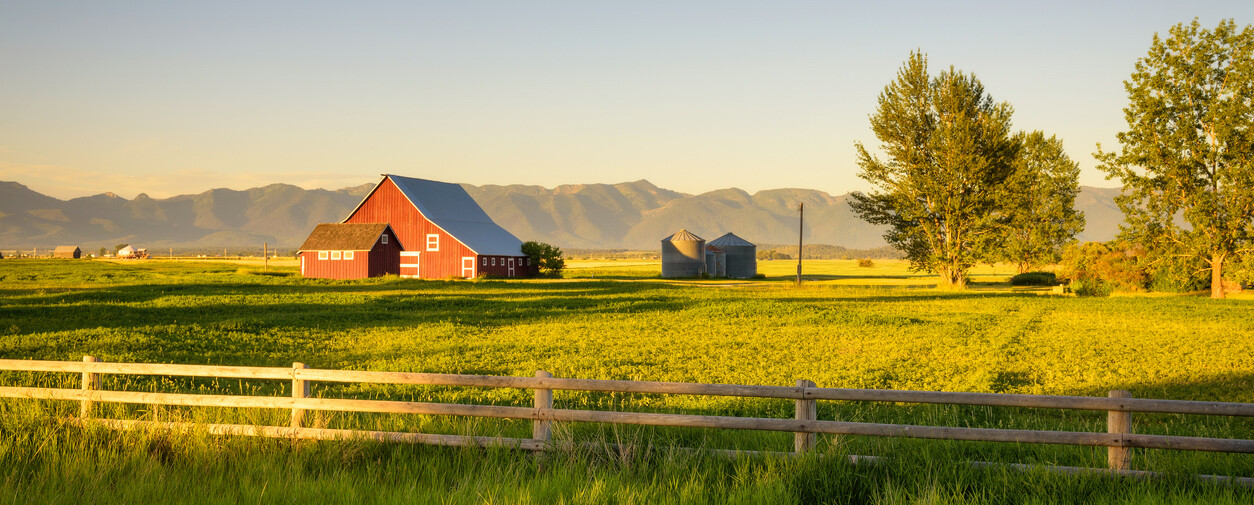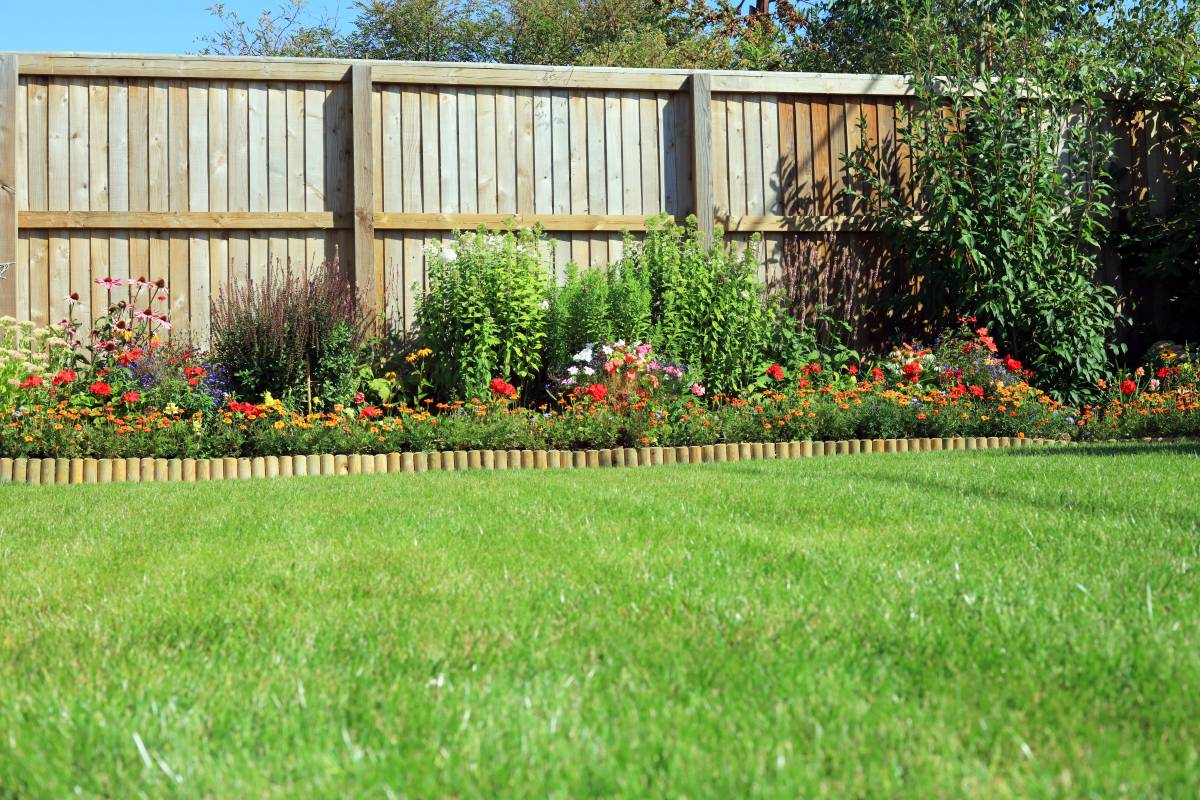- Home/
- Costs/
- Fence Installation/
- Fencing Cost Guide
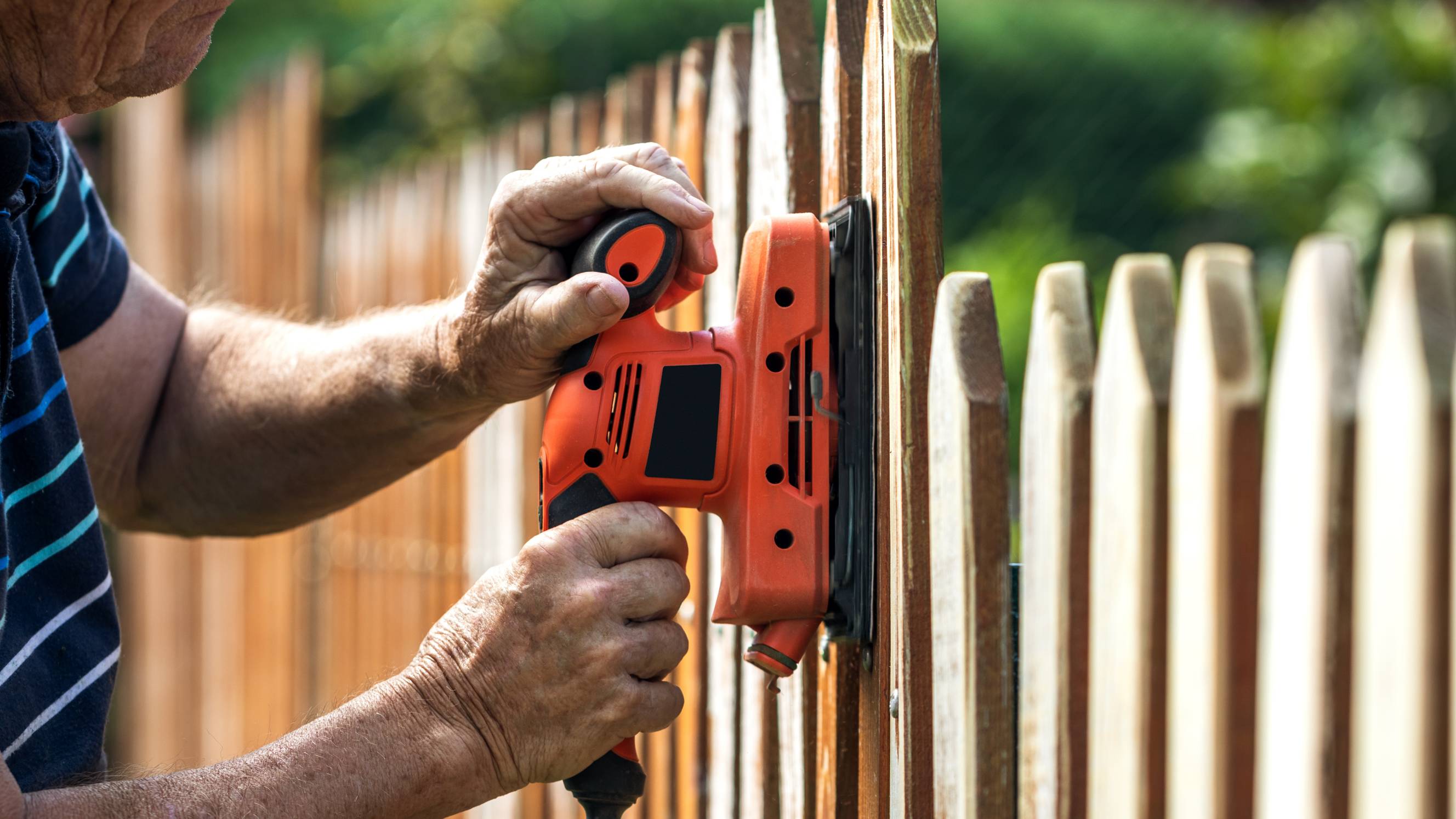
How much does fencing installation cost in the UK?
Hire a fence installerPost to find a price. It's free and only takes a minute.
Average fence installation price range per metre
£38 - £1,400
low
£38
median
£296
high
£1,400
Last Updated on

Written by Angela A.
Staff Writer
Read more about our contributor
Key Facts
The average cost of fencing per metre in the UK is £38 to £1,400.
The demand for fence installation is lower in autumn and winter, so you can expect discounts and lower rates during these seasons.
Fences over 2 metres (or 1 metre if near a road) may require planning permission from local councils.
Installing a new fence can cost anywhere between £38 and £1,400, depending on the materials used. With so many options and variables to consider, figuring out the cost of fencing can be overwhelming for many homeowners.
In this guide, we’ll break down the key factors that influence the cost of a new fence. We’ll help you plan your project effectively and choose the right option for your property.
Overview of fence installation costs
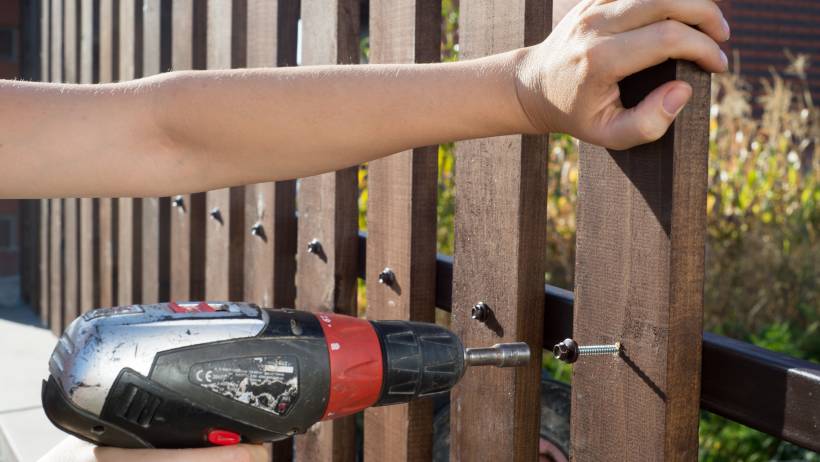 A fence installer using a power drill to install wooden fencing (Source: iStock)
A fence installer using a power drill to install wooden fencing (Source: iStock)
Materials, size, and complexity of the project affect how much fencing costs in the UK. On average, you’ll need to consider the cost of fence panels, posts, and any additional materials, plus labour for installation and ground preparation.
Fencing is available in several types, including wooden, metal, and PVC. The number of panels depends on your property’s perimeter, and taller fences (around 6 feet) tend to cost more due to additional materials. Just don’t forget about posts and gravel boards for extra stability and protection against ground moisture.
When hiring professional installers, labour and ground preparation add to the total cost. This includes clearing vegetation, removing old fences, and preparing uneven terrain. Planning permission might be required in certain cases, especially if your fence is near a road or a listed building.
What are the average costs of fencing in the UK?
The type of fence you go for will dictate how much fencing is per metre in the UK. Some options are budget-friendly, while others lean more toward luxury, but the key is knowing which option suits your needs and budget. Keep reading to see what each option will set you back and find the best choice for your space.
Wood fencing
| Fence type | Average costs* |
|---|---|
Close board fencing |
£69 to £135 per bay kit |
Lap panel fencing |
£26 to £75 per panel |
Slatted fencing |
£75 to £700 per building kit |
Weave fencing |
£43 to £120 per panel |
Lattice fencing |
£55 to £140 per building kit |
*Note: Wooden fencing types are sold per panels or via building kits. The price ranges above are labelled accordingly.
If you’re looking for a classic and versatile option, wooden fences might be the way to go. A new wooden fence costs anywhere from £26 to £120 per panel or £55 to £700 per building kit.
Close board fencing, known for its strength and durability, is perfect for garden boundaries and costs between £69 and £135 per bay kit. For a more budget-friendly option, lap panel fencing offers decent privacy at £26 to £75 per panel and is ideal for most residential gardens.
For those who want a modern, sleek look, slatted fencing is a great choice. They’re priced between £75 and £700 per panel.
If you prefer something more traditional, weave fencing gives a rustic vibe and falls between £43 and £120 per panel. Lastly, lattice fencing, commonly used for decorative purposes or supporting climbing plants, costs around £55 to £140 per building kit.
Metal fencing
| Fence type | Average costs per metre |
|---|---|
£200 to £1,400 |
|
Metal fencing |
£130 to £450 |
Metal fences are a strong, long-lasting option, and a new one costs anywhere from £130 to £1,400 per metre. Iron fencing’s classic design and hardy structure are ideal for both decorative and security purposes. It ranges from £200 to £1,400 per metre, depending on design complexity and height.
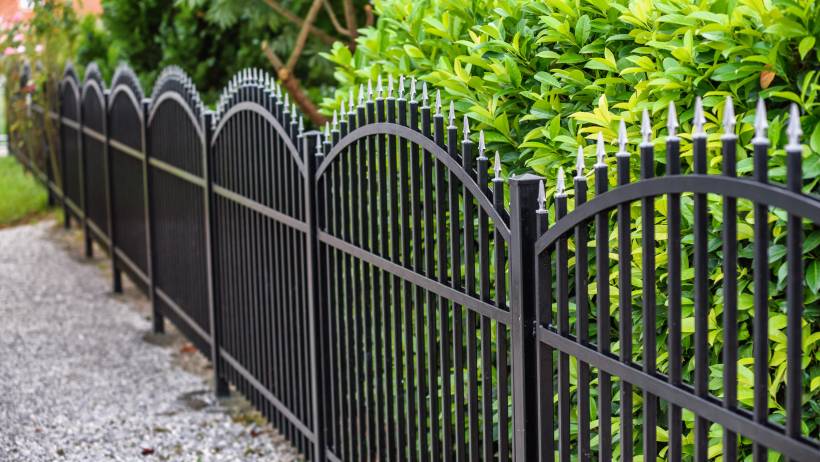 A decorative black metal fence surrounded by lush green foliage (Source: iStock)
A decorative black metal fence surrounded by lush green foliage (Source: iStock)
For a more cost-effective alternative, metal fencing (which includes materials like steel or aluminium) costs between £130 and £450 per metre. This type of fencing works well in both residential and commercial settings. They’re often customisable, too.
Other fencing types
| Fence type | Average costs* |
|---|---|
Chain-link fencing |
£80 to £350 per metre |
£38 to £50 per panel |
|
Composite fencing |
£140 to £270 per kit |
£55 to £180 per panel |
|
£205 to £550 per linear metre |
|
£263 to 710 per 6-ft roll |
|
£73 to £185 per panel |
*Note: Other fencing types are sold in metres, per panels and rolls, or via building kits. The price ranges above are labelled accordingly.
Chain-link fencing is a practical choice for homeowners looking to save on fencing costs. It’s a good alternative if you only plan to install fencing in areas where privacy isn’t the main concern. Like if you’re looking for a cheap way to fox-proof your chicken coop.
Homeowners seeking a charming, cottage-like look will love the classic picket fence, which adds just the right touch to their property. Prices range from £38 to £50 per panel. Garden fence panels offer a similar traditional look for £73 to £185 per panel.
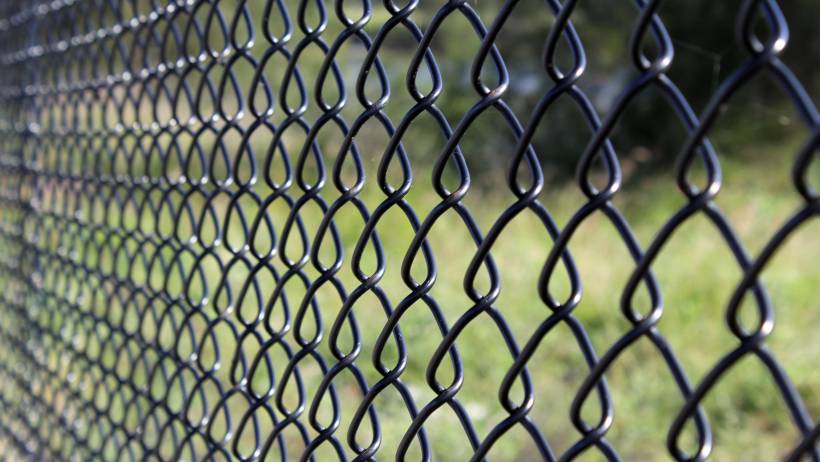 Close-up of ornate black chain-link fence (Source: iStock)
Close-up of ornate black chain-link fence (Source: iStock)
On the other hand, composite fencing made of combined wood fibres and plastic is durable and requires minimal maintenance. Composite fencing costs range between £140 to £270 per kit. If you’re not into wood, a PVC fence is another long-lasting and low-maintenance option. Its panels cost between £55 and £180.
You can also go for a sleek and sophisticated glass fence. Typically used around pools or outdoor spaces, this type of fencing is priced from £205 to £550 per linear metre. For anyone with pets, having a pet fence is a must-have to ensure your furry friends stay safe and protected. Its costs range from £263 to £710 for a 6-ft roll.
What factors affect the costs of fence installation?
Many factors influence the final price of your fence installation, so it’s not just about choosing a material and starting. Find out what to consider before using any fencing cost calculator in the UK to get an accurate estimate.
Geographic location
| Cities | Labour rates per hour |
|---|---|
£32 to £37 |
|
Edinburgh |
£21 to £26 |
Belfast |
£20 to £25 |
£24 to £29 |
|
Cardiff |
£23 to £28 |
Torbay |
£23 to £28 |
Newcastle |
£29 to £34 |
Birmingham |
£35 to £42 |
Cambridge |
£21 to £28 |
Geographic location plays a big role in determining fencing prices. In cities like London and Birmingham, labour rates are higher, ranging from £32 to £42 per hour. Urban areas can also have stricter regulations and higher demand, which can push up prices for both materials and installation.
Meanwhile, rural areas tend to have lower costs but may face additional transportation fees for materials. This means that while you might pay less for labour in regions like Belfast or Torbay, sourcing materials from distant suppliers can actually raise your total expenses.
Fence size and height
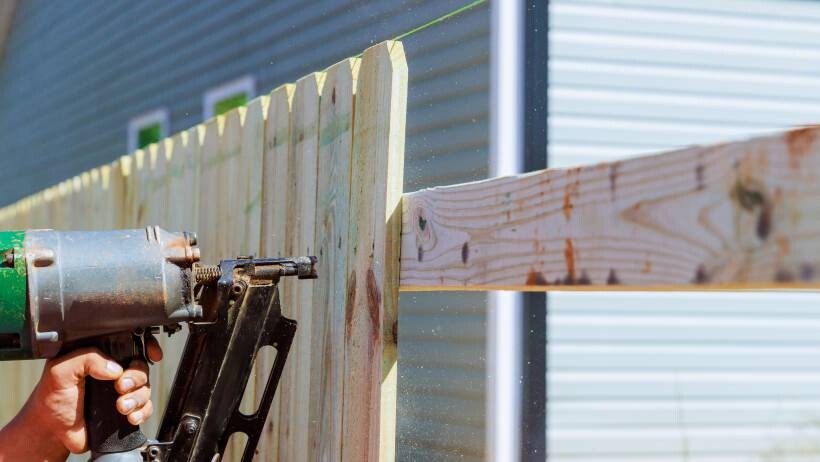 Using a power tool to install new fencing (Source: iStock)
Using a power tool to install new fencing (Source: iStock)
The size and height of your fence play a big role in determining the final cost. Taller fences, typically around 6 feet for privacy, require more durable materials and larger panels. This drives up both fencing costs per metre and labour expenses.
Shorter fences, like decorative picket styles, use fewer materials, so they’re more affordable and quicker to install. If you’re fencing a large perimeter, the total cost will rise as more panels, posts, and labour are needed to complete the job.
Material quality
The quality of materials directly impacts the price of fencing per metre. For example, higher-quality options like hardwood, composite, and metal cost more than standard wooden fence panels or chain-link.
However, there’s a reason why these materials come with a steeper price tag upfront. Premium fencing panels made from oak, composite, or PVC are popular for their long lifespan and weather resistance in the UK’s unpredictable climate. Most of the high-end materials are also low-maintenance.
Basic timber is more affordable but requires regular upkeep. Other cheaper options like softwood, while cost-effective initially, may require more frequent maintenance and replacements that add to long-term costs.
Old fence removal
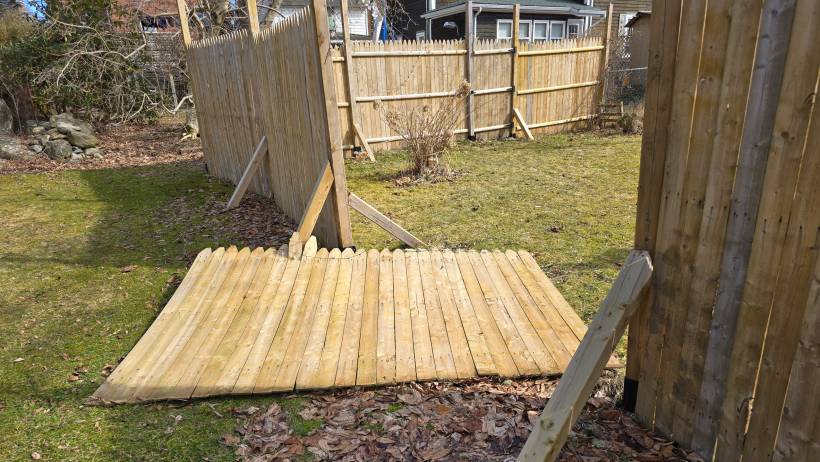 Old wooden boards being removed (Source: iStock)
Old wooden boards being removed (Source: iStock)
If you need to remove an old fence before putting up a new one, it will add extra labour time and expense. Removing concrete-set posts or deeply embedded structures can be tricky, so it will require more time, equipment, tools, and effort from the installers.
Ground preparation is often necessary as well, especially for older properties where fences have been rooted for years. This means you’ll need to level the area and repair any damage caused by the old fence. The rule of thumb is that the more complex the removal, the higher the labour charges.
Waste disposal
Waste disposal is another important factor that can raise the cost of your fence installation. After the old fence is removed, the debris—whether it’s wood, metal, or concrete—needs to be disposed of properly. Some contractors include this service in their quote, while others charge separately for waste removal.
Environmental regulations play a role, too. In some areas, disposal fees can be higher, particularly if you’re dealing with treated wood or other materials that require special handling. It’s worth checking with your installer if these costs are included upfront or will come as an extra charge later.
What are the additional costs to consider when installing a new fence?
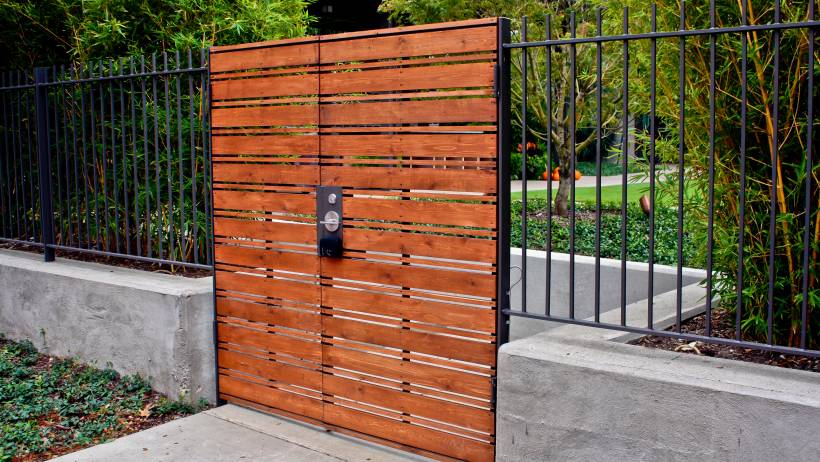 Metal fencing with a wooden gate (Source: iStock)
Metal fencing with a wooden gate (Source: iStock)
When budgeting for a new fence, there are extra costs to keep in mind that can add up quickly. Below are some common factors that may affect your overall fence installation cost:
Garden gate
Adding a gate requires additional materials and more durable posts. A garden gate can cost anywhere from £100 to £2,500, depending on its size, design, and material.
Fence painting
To protect your fence panels from the elements like rain, UV rays, and temperature changes, painting or staining is important. This is especially the case if they’re made of wood. Expect to spend £20 to £30 on paint or stain and between £100 to £225 for labour if hiring a professional.
Temporary fencing
If the installation process takes a few days or weeks to complete, you may need temporary fencing to maintain your property’s security or privacy, especially if you have pets or children.
Permit costs
Depending on the height or location of your new fence, you may need planning permission from the local council. In the UK, this is required for fences over 2 metres in height or over 1 metre if they border a road. Permit fees vary by region and should be factored into the total cost.
Landscaping
Ground preparation and adjustments to surrounding landscaping can also increase labour costs. Clearing vegetation or levelling the ground is often necessary to ensure a smooth installation. Prepare to shell out £100 to £1,000 for smaller yard maintenance or up to £50,000 if major redesigns will be needed.
What should you look for when hiring a professional fence installer?
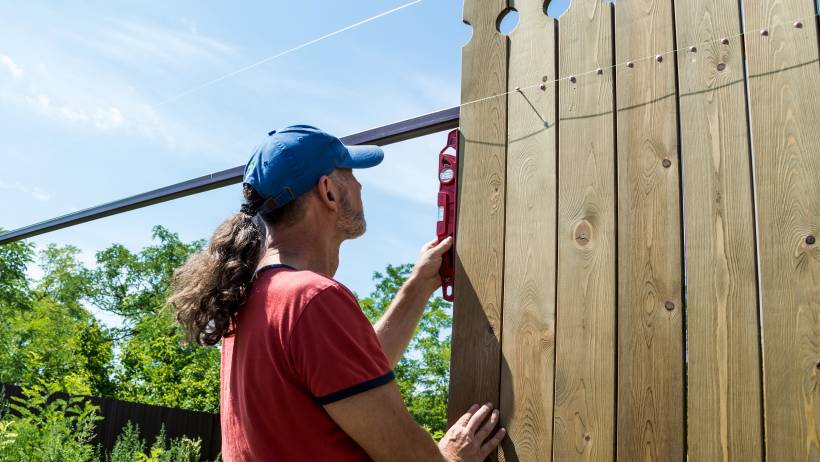 A handyman installing fence boards (Source: iStock)
A handyman installing fence boards (Source: iStock)
Knowing how much a new fence would cost is not enough. There are also factors to consider when choosing the right fence installer for the job.
Check their qualifications and experience
Make sure that the installer is qualified and has experience with the type of fencing you need, whether it’s wood, composite, or metal. Check for membership in professional bodies like the Fencing Contractors Association (FCA) or TrustMark accreditation, which guarantees that the contractor meets industry standards.
Get multiple quotes and compare services
Always compare quotes from contractors. Make sure that each one includes a breakdown of costs for materials, labour, and any additional services like waste disposal.
Look for clear communication and professionalism
Choose an installer who communicates clearly, answers your questions, and provides guidance on materials, design, and timelines.
Discuss site preparation and aftercare
Ask whether they handle site preparation, like clearing old fencing. Inquire about any post-installation support or maintenance services they offer as well.
How can you save money when installing a new fence?
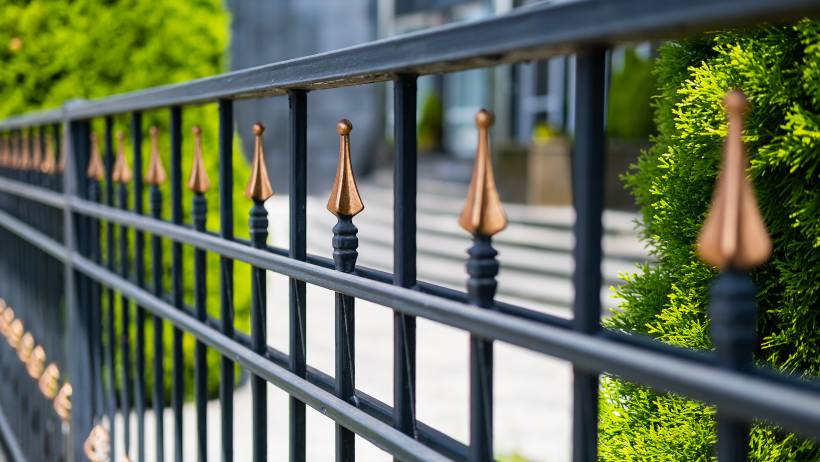 Ornate black metal fence with decorative copper finials (Source: Stock)
Ornate black metal fence with decorative copper finials (Source: Stock)
Installing a new fence doesn’t have to break the bank. Here are a few practical ways to reduce your costs while still achieving the look and functionality you want.
Reduce the height of the fence. Taller fences use more materials and take longer to install. Opting for a shorter fence, like 4 or 5 feet, can cut down on both material and labour costs.
Choose basic fence designs. Simpler designs, like lap panels or picket fencing, are more affordable than custom or decorative styles.
Reuse existing posts or materials. If your current fence posts or panels are still in good condition, reuse them.
Plan fence installation in the off-season. Schedule it in autumn or winter when demand is lower.
Minimise ground preparation costs. Clearing the ground and removing obstacles can reduce the labour needed.
Buy materials in bulk. If you’re installing a long fence or multiple sections, buying materials in bulk can lead to discounts. Look for deals when purchasing the panels and other supplies.
Invest in durable materials. While materials like pressure-treated wood or composite might be pricier upfront, their long-lasting durability will save you money on maintenance and replacements in the long run.
Skip the stain or paint. Forgoing painting or staining saves you both time and money upfront. However, you can always paint garden fence panels later if desired.
Let experts handle your fencing project
Planning a new fence installation can be a lot to take on, especially when it comes to choosing materials, measuring the space, and ensuring a smooth installation. But there’s no need to go through it alone—why not let the experts handle your fencing installation?
By posting a task on Airtasker, you can connect with pros who specialise in fencing repairs, staining, and full installations. They’ll bring the expertise and care needed to get your project done right.
Post a task today and meet experienced Taskers ready to build the perfect fence for your home. No job is too big or small!
Learn more about our contributors

Written by Angela A.
Staff Writer
Angela Apolonio is an experienced writer with a Biology background. She writes about home tips, car upkeep, gardening hacks, and food facts, bringing a unique blend of science and practicality to her work. As a wife and a mother, she knows the value of iron-clad routines, so she's passionate about sharing what works for her with everyone else. She loves making everyday life simpler and helping readers find fresh ideas to bring more joy into their spaces.
FAQs on fence installation
Installing a fence yourself always carries a risk, especially since materials can be heavy. Fence installation can be physically demanding, and you’ll need at least two people, even for smaller fences. It’s better to hire a professional for this extensive work to ensure safe and proper installation.
Fence ownership is usually outlined in the property deeds, which will indicate which side is responsible for the fence. The "T" mark on the deeds shows ownership of the boundary and the fence.
Fence installation costs are higher in London due to increased labour and material expenses, with labour rates ranging from £32 to £37 per hour.
Chain-link fencing is the most affordable option. They’re commonly used in large gardens or industrial areas where privacy isn’t a concern.
Fencing is typically cheapest during winter. Demand drops and contractors may offer discounts on labour and materials.
Find fence installaters, fast
Post a task
Related price guides
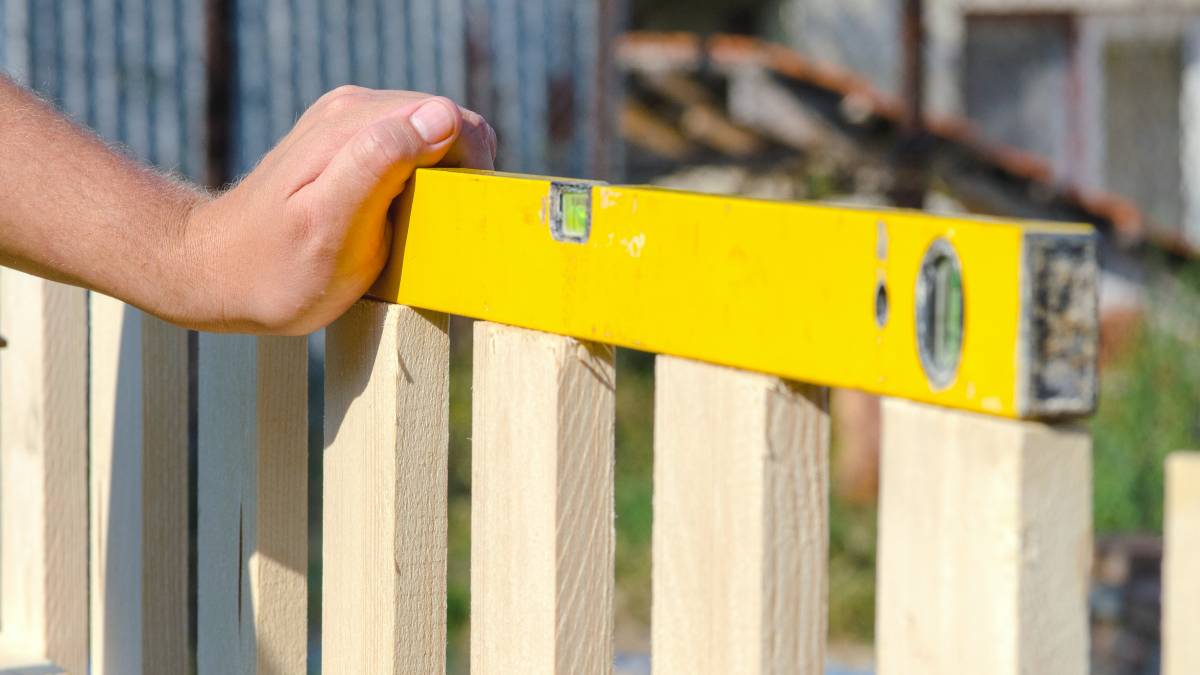
How much does wood fencing cost?
Read more
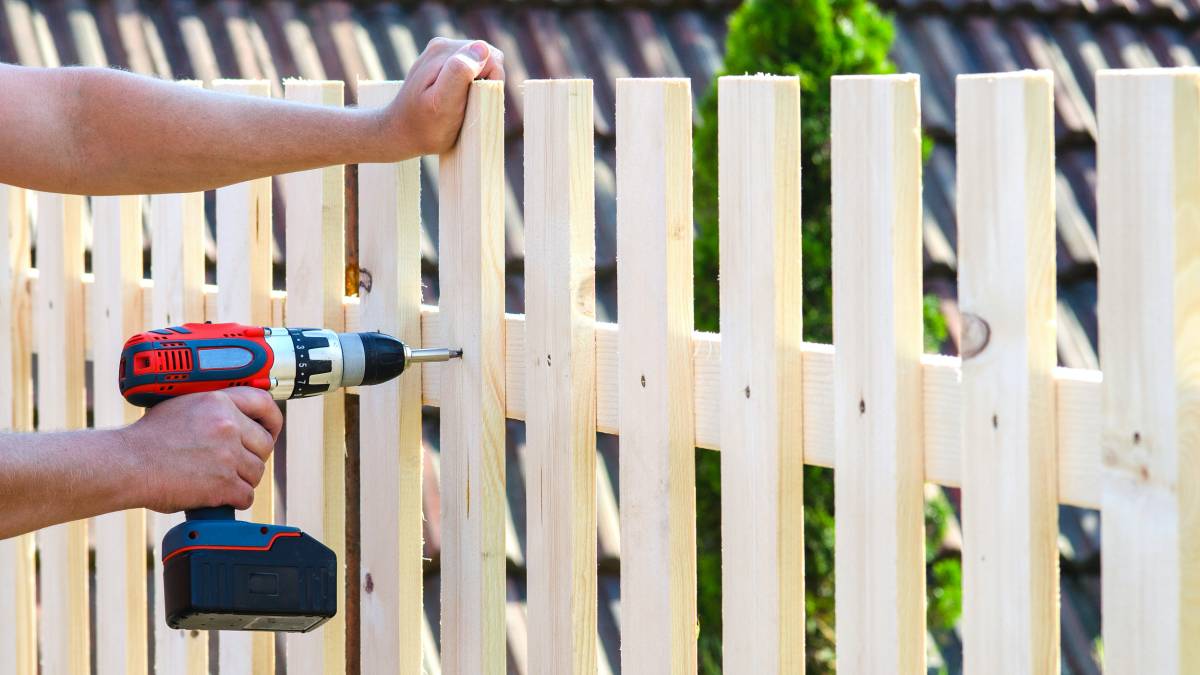
How much does fence repair cost?
Read more
Related articles
